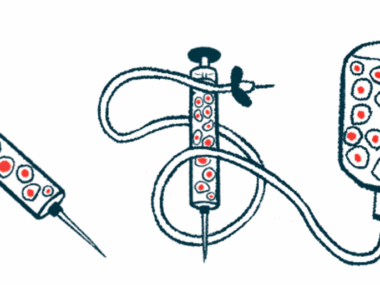Bemdaneprocel to move into Phase 3 trial soon
Trial to assess safety, efficacy in patients with moderate Parkinson's
Written by |

BlueRock Therapeutics said it is progressing its investigational cell therapy, bemdaneprocel, into a Phase 3 clinical trial set to begin in the first half of 2025. The trial, named exPDite-2, will assess the safety and efficacy of the treatment for moderate Parkinson’s disease.
This decision comes after positive data from exPDite (NCT04802733), a small, Phase 1 clinical trial in which bemdaneprocel helped patients spend more time with symptoms under control and less time in off periods, when symptoms return as medication wears off.
Patients who completed the exPDite trial had the option to roll over into a five-year extension study (NCT05897957). The company also had planned to advance testing of bemdaneprocel into a Phase 2 clinical trial, which was expected to begin enrolling late last year.
In discussions held as part of an expedited program for regenerative medicine advanced therapies, the U.S. Food and Drug Administration agreed with the design of exPDite-2, a registrational clinical trial that may provide data to be included in a package for regulatory filing, taking bemdaneprocel one step closer to potential approval.
“We are thrilled to take this critical step in our development program towards further investigating a potential new therapeutic option for people living with Parkinson’s disease,” Amit Rakhit, MD, chief development and medical officer at BlueRock, a subsidiary of Bayer, said in a company press release.
Speeding the process
“With the planned initiation of the Phase [3] clinical trial, we are committed to bringing bemdaneprocel faster to patients in need,” added Christian Rommel, member of the executive committee of Bayer’s Pharmaceuticals Division and global head of research and development.
Symptoms of Parkinson’s occur due to the loss of dopaminergic neurons, the nerve cells responsible for producing dopamine in the brain. Dopamine is a chemical that signals for motor control. Loss of dopamine causes motor symptoms like slowed movements, tremor, and stiffness.
Levodopa, the standard treatment for Parkinson’s, works by converting into dopamine in the brain. But as time goes on, its effects may wear off before the next dose is due, causing off periods when symptoms return. Motor fluctuations may become more frequent as the disease progresses.
Bemdaneprocel is a cell therapy designed to replace the lost dopaminergic neurons with new ones. The cell therapy uses human embryonic stem cells to generate dopamine-producing cell precursors, which are then surgically transplanted into the brain.
The goal is for the transplanted cells to give rise to neurons and form neural networks lost to Parkinson’s, easing symptoms.
The exPDite-2 trial is designed to test bemdaneprocel against a sham surgery in 102 patients with moderate Parkinson’s. The goal is to track changes in on time, when symptoms are well controlled without dyskinesia, involuntary movements occurring as a side effect of long-term use of levodopa, over 78 weeks (1.5 years).
Secondary goals include watching for changes in how well patients move, how safe bemdaneprocel is, and how it affects daily activities and quality of life. Neither patients nor researchers will know who receives bemdaneprocel or the sham surgery, which will be assigned at random.
“exPDite-2 is the first registrational Phase [3] clinical trial for an investigational pluripotent stem cell derived therapy in Parkinson’s disease and we look forward to working closely with clinical investigators and the Parkinson’s disease community as we initiate this trial,” Rakhit said.



